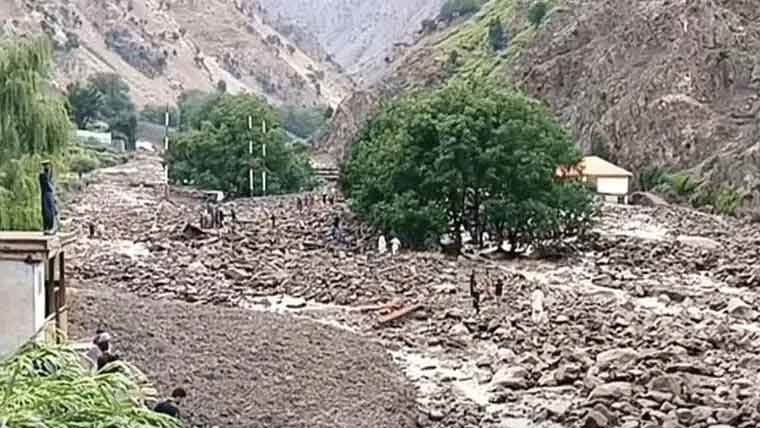Floods in Gilgit-Baltistan Force School Closures, Displacements, and Mental Health Crisis
In the aftermath of severe flooding in Gilgit-Baltistan’s Ghizer district, the provincial government has extended the closure of 63 schools beyond the earlier deadline of August 25. The decision comes as relief and rehabilitation operations continue in the flood-hit areas.
According to government spokesperson Faizullah Faraq, the closures may be extended further depending on ground conditions. A relief camp has been set up in Talidas, where over 150 tents have been provided to displaced families by the Disaster Management Authority.
Authorities have distributed more than 300 food parcels in Talidas, along with kitchen and hygiene kits, tarpaulins, shades, mats, water coolers, and over 2,000 bottles of drinking water. Medical teams and ambulances have also been deployed for timely healthcare support.
An artificial lake formed in Talidas due to the floods is being closely monitored. Meanwhile, parts of Ghizer remain cut off for the fifth day as clearance work continues on the Gilgit-Shandur road. In Raushan village, around five kilometres of roadway remains submerged, isolating hundreds. Nearly 300 homes have been destroyed, with several villages including Hakis, Thangi, and Raushan still underwater.
READ MORE:
PTA Restores 98% of Telecom Sites in Karachi After Heavy Rains
In Hunza, the Karakoram Highway at Hassanabad has been blocked for three weeks due to flooding from the Shishper glacier, causing further isolation and destruction of houses, farmland, and infrastructure.
Psychological Toll and Government Response
The G-B government has acknowledged the growing psychological distress among flood victims, particularly women, children, and the elderly. A meeting led by Additional Secretary Arif Tahseen of the Social Welfare Department included senior officials from both public and private sectors to formulate a coordinated mental health support plan for disaster-affected communities.
Tahseen emphasized that while the floods have caused devastating physical and economic losses, the emotional trauma is equally serious and demands urgent mental health interventions.




